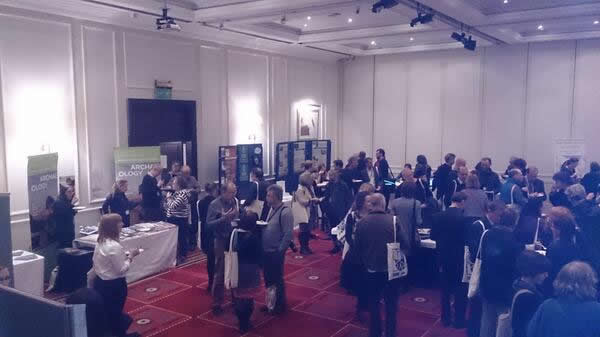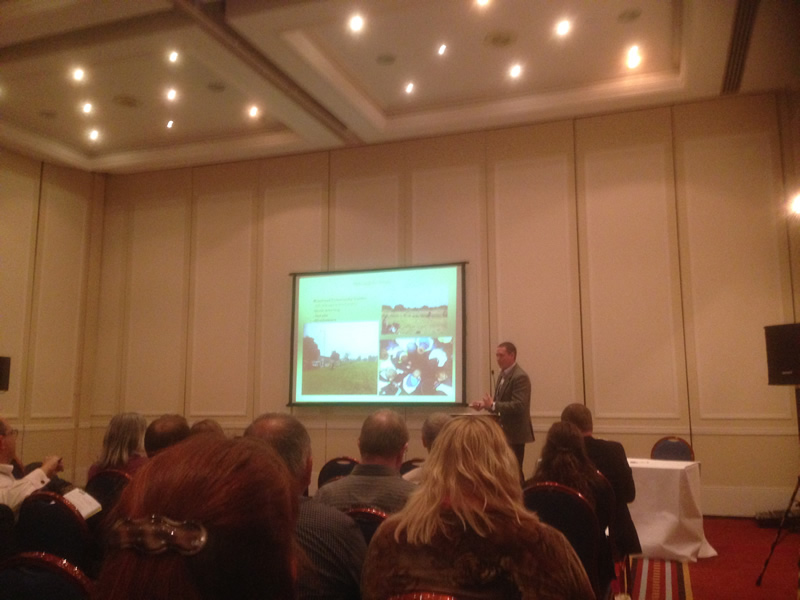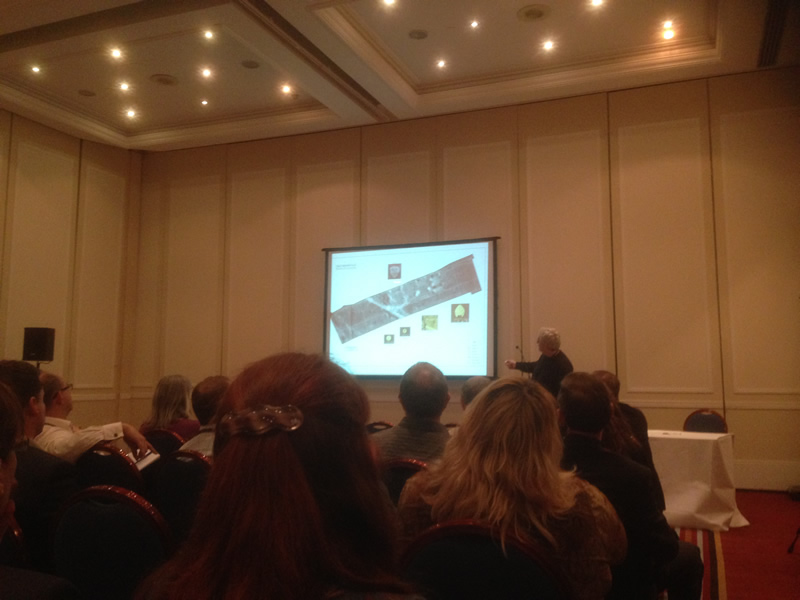GUARD Archaeology were pleased to sponsor the Politics and Archaeological Research session at the Institute for Archaeologists (IfA) 2014 Conference held at the Marriott Hotel in Glasgow between 9 and 11 April 2014.
2014 is a year when the past and the present will have special political resonance in Scotland and the UK as a whole. Coinciding with the Scottish Independence referendum, 2014 will see events focusing on the 700th anniversary of the Battle of Bannockburn and the 100th anniversary of the start of the First World War, both the subjects of intensive archaeological research in recent years, which have been undertaken within an increasingly charged political atmosphere. Can such high profile archaeological research be undertaken entirely removed from the political context of the present? Given the heavy community involvement in such research, do politics play a part in motivating participation? What part does the modern political context play in funding archaeological research and directing the questions such research seeks to answer? Should archaeologists be merely bystanders when archaeology is appropriated by opposing political perspectives? The session, which was organised by GUARD Archaeology Ltd and the Centre for Battlefield Archaeology University of Glasgow, sought to provoke discussion on what lessons can be drawn and perspectives taken from past and ongoing archaeological projects.
Chaired by GUARD Archaeology Ltd's Managing Director, John Atkinson, the session was held on 9 April, the first day of the conference and included a number of lectures that explored the links between politics and archaeological research within European, British, Scottish and local political contexts.
In his talk, Bear traps and minefields: the experience of digging high profile archaeology sites, Dr Iain Banks (Executive Director of the Centre for Battlefield Archaeology at the University of Glasgow) presented a number of politically loaded cases from his work on battlefields over the past 15 years where the work he has carried out has been perceived as controversial. One of the points he made was that working in the public eye presents real challenges in terms of the presentation of results, dealing with negative reactions and trying to avoid accusations of partisanship.
Warren Bailie, from GUARD Archaeology Ltd, on the other hand revealed in his Motivating the Troops: perspectives in battlefield archaeology talk that political motivations have been entirely absent amongst the 1000 volunteers who have been involved in the various Battle of Bannockburn archaeology projects that GUARD Archaeology have been leading in recent years, despite the politically charged climate of the time. Drawing answers from a questionnaire distributed to the volunteers who participated in the Bannockburn fieldwork projects, the more prevalent view was that volunteers saw a unique, once in a lifetime opportunity to be involved in archaeological investigations that could rewrite the history of the Battle of Bannockburn. The anticipation of finding that elusive key artefact may be motivation enough.
In their paper, Full circle? – archaeology and politics, a retrospective, Andrea Smith (Freelance Archaeologist) and John Lawson (City of Edinburgh Council Archaeology Service and Chair, ALGAO: Scotland) considered the influence which politics have had on archaeological research and the archaeological profession as a whole since the 1970s, observing that the community based rescue archaeology of the 1970s, which was largely replaced by an increasingly commercialised and professionalised archaeology in the 1990s, has since, with a shift in political emphasis, re-emerged amongst the archaeology profession who are more clearly expected to define the relevance, public benefit and community participation in their research.
Dr Ian Baxter (Head of the Division of Tourism, Heritage, Events and Hospitality, University Campus Suffolk) and Dr Simon Gilmour (Director, Society of Antiquaries of Scotland) examined the diverse contexts of the county of Suffolk, nation of Scotland, and international region of the Mediterranean in their Understanding the politics of scale - shared heritage challenges in the global village lecture. One of the key points they made was that a collaborative approach between local, regional and national agencies, however difficult that might be within narrow political interests, was a far more successful way of experiencing, researching, interpreting and managing heritage assets.


